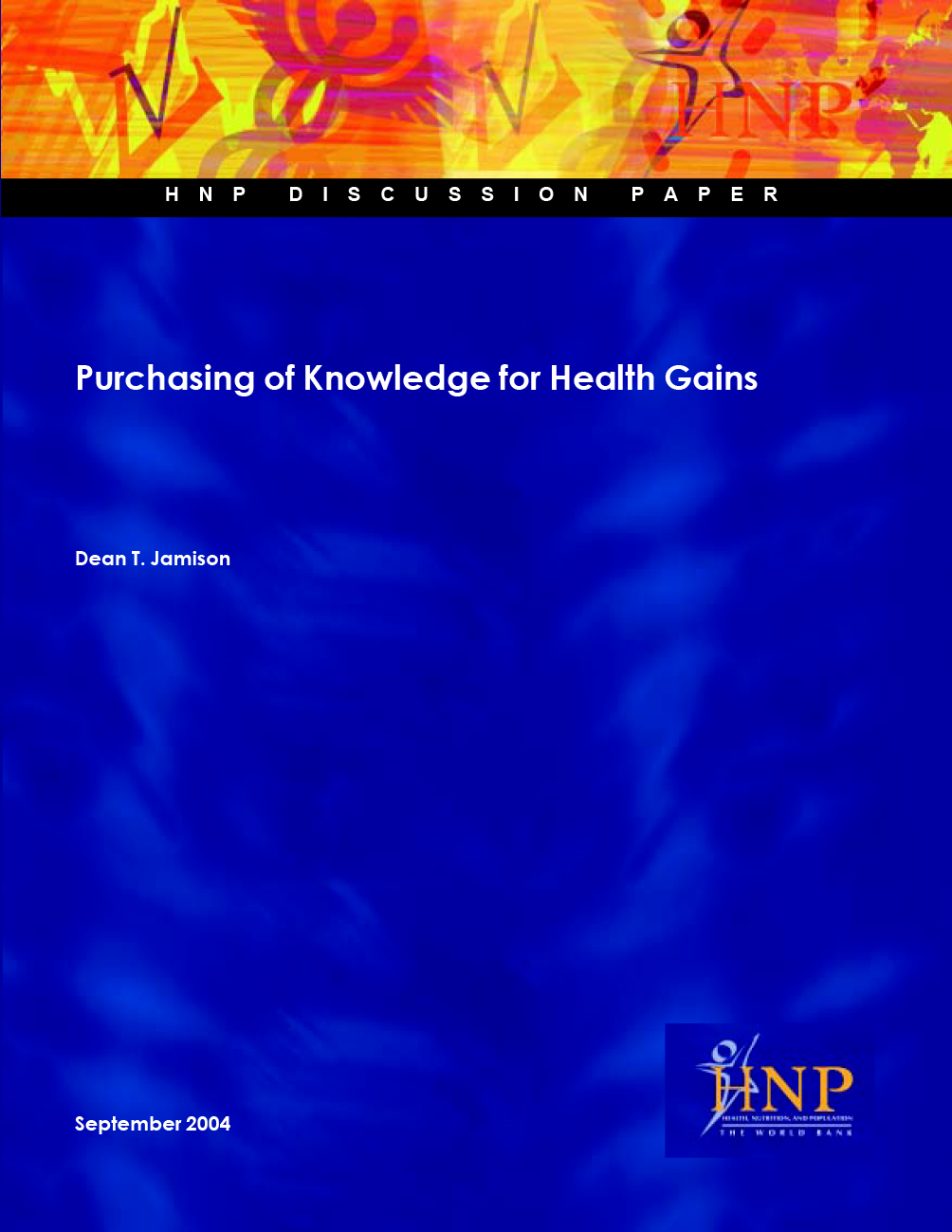
Resource Library
Purchasing of Knowledge for Health Gains
The 20th century witnessed a global transformation in human health. Chile's experience illustrates the magnitude of this transformation. By the mid-1990s Chile's per capita income had reached about US$4,000 (adjusted for purchasing power), and Chilean women had achieved a life expectancy of 79 years. A century ago, in 1900, today's high-income countries also had income levels around $4,000—and, therefore, had resources sufficient to provide their populations with adequate food, water, shelter, and sanitation. Yet, for them, female life expectancy at the time was perhaps 30 years less than it is in Chile today. An important factor has been advance in scientific knowledge and its application both in creating powerful interventions and in guiding behavior. Acquisition and utilization of health research and development or its products becomes, then, an essential function of a country's health system. Much knowledge is embodied in global public goods: once a vaccine for hepatitis B has been developed anywhere it becomes, in some sense, available everywhere. Although monopoly pricing made possible by patents may slow the diffusion of some innovations, the temporary nature of patent-induced monopoly pricing limits this effect. But an innovation's being cheap, powerful, and globally available in no way entails its global use. There indeed appears to be enormous variation in the rate at which different countries make use of knowledge and products that are globally available. This discussion paper presents knowledge as an important function of national health systems. The paper uses the term "acquisition" rather than "purchasing" for the most part because of its more general connotation. That said, most of the issues such as agency roles and organization that are important for resource allocation and purchasing in general are likewise important with respect to research and development.
Resource Type : Other
Country :
Year : 2004-09-01T14:00:00
Language : English
Project : SHOPS


